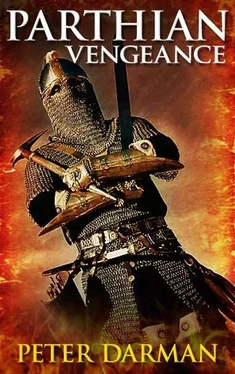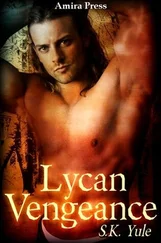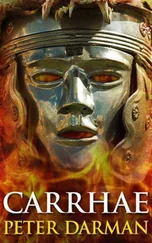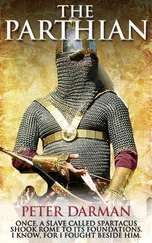Peter Darman - Parthian Vengeance
Здесь есть возможность читать онлайн «Peter Darman - Parthian Vengeance» весь текст электронной книги совершенно бесплатно (целиком полную версию без сокращений). В некоторых случаях можно слушать аудио, скачать через торрент в формате fb2 и присутствует краткое содержание. Год выпуска: 2012, Жанр: Исторические приключения, на английском языке. Описание произведения, (предисловие) а так же отзывы посетителей доступны на портале библиотеки ЛибКат.
- Название:Parthian Vengeance
- Автор:
- Жанр:
- Год:2012
- ISBN:нет данных
- Рейтинг книги:5 / 5. Голосов: 1
-
Избранное:Добавить в избранное
- Отзывы:
-
Ваша оценка:
- 100
- 1
- 2
- 3
- 4
- 5
Parthian Vengeance: краткое содержание, описание и аннотация
Предлагаем к чтению аннотацию, описание, краткое содержание или предисловие (зависит от того, что написал сам автор книги «Parthian Vengeance»). Если вы не нашли необходимую информацию о книге — напишите в комментариях, мы постараемся отыскать её.
Parthian Vengeance — читать онлайн бесплатно полную книгу (весь текст) целиком
Ниже представлен текст книги, разбитый по страницам. Система сохранения места последней прочитанной страницы, позволяет с удобством читать онлайн бесплатно книгу «Parthian Vengeance», без необходимости каждый раз заново искать на чём Вы остановились. Поставьте закладку, и сможете в любой момент перейти на страницу, на которой закончили чтение.
Интервал:
Закладка:
‘Rasha presents me with a problem.’
‘How so, lord?’ I replied.
‘She is restless, Pacorus, she wants more than tents and the desert.’
‘She is a princess of your people, lord.’
‘But she has mixed with your people, has talked with merchants from distant lands and heard their tales of mythical beasts and strange tribes. More than that, she wants to be like your wife.’
‘Gallia?’
‘Of course, why not? Who would not want to be like the fabled warrior queen of Dura? To ride as well as any man, to fight as well as any man and be more ruthless than most? All these things she desires.’
‘I had no idea that she was so besotted, lord. I apologise.’
He held up a hand. ‘There is no need. Your wife, Pacorus, bewitches us all. Why do you think I let you live all those years ago when you and she came alone into my kingdom to return Rasha to me.’
He looked at me with his black, emotionless eyes then laughed aloud. He reached over and slapped me hard on the shoulder.
‘And she shoots a bow better than you.’
But Haytham had been wrong about that day when we had brought his daughter back to him, for there had been another with us, a man who had made his home among the Agraci and had taken one of their women as his wife. Orodes and I went to see Byrd the next day. He knew we were in Palmyra, of course, but had no interest in hunting or the conversation of kings. He also knew that we were immensely fond of him and would call on him and Noora his wife. We found him shaking hands with a merchant over a dozen camels he had just purchased. He saw us and nodded, then continued with his conversation. The merchant became most intrigued by the two richly appointed individuals who dismounted and waited patiently behind Byrd as he conducted his business. There was no need for him to engage in such trade as he was given gold every month from the treasury in Dura. He had at first refused, saying that he had always earned his own keep. But I prevailed when I told him that it was unbecoming for the best scout in the Parthian Empire to be scratching a living in the desert. Gallia was always pestering him and Noora to come and live with us in the palace at Dura but he always refused. He was happy enough with his Agraci woman. But as he was also very fond of Gallia they both visited us often and as with Rasha, we had set aside a room for them in the palace.
The merchant pocketed his money, shook Byrd’s hand once more, gave Orodes and me a curious look and then departed.
I walked up to Byrd and embraced him. ‘Selling camels now, Byrd?’
Orodes likewise greeted him warmly.
‘Just dabbling,’ he replied. ‘Always good to talk to those who pass through here. Pick up much useful information.’
He gestured to a youth, a boy of no more than twelve years in age, who gathered up the reins of the camels and led the beasts into a fenced-off area behind Byrd’s large goatskin tent.
‘And what is the latest gossip?’ I enquired.
‘I hear that three men rule Rome, two of them you have met: Crassus and Pompey.’
‘Hopefully they will stay in Rome,’ said Orodes.
‘Who’s the third?’ I asked.
‘A man called Caesar. This Romani general has won many victories, I have heard.’
Orodes slapped me on the arm. ‘Not as many as Pacorus, I’ll hazard.’
I laughed and then we went inside to share a meal with Byrd and his wife. Noora was a hardy woman who had been married before, though her husband had died many years before in an Agraci raid against my kingdom. That was in the time when there was open war between us. Noora had no children and the Romans had killed Byrd’s family in Cappadocia, and now she was probably too old to give birth, but they were content with each other’s company and for that I was glad. Once more I conveyed a request from Gallia for them to make their home in Dura and once more they politely refused.
‘But we will all be together soon enough, lord,’ Byrd said, ‘when the Companions gather.’
Two weeks later he and Noora and the rest of those who had fought in Italy under Spartacus were gathered in the Citadel’s banqueting hall. We called ourselves Companions because that is what we were; a band of warriors and survivors from many races and lands that had made the journey from Italy to Parthia. A motley collection of Greeks, Dacians, Spaniards, Germans, Thracians, Parthians and a woman from Gaul, my wife Gallia. Among the Companions there were no ranks, no hierarchy and no grades of social status. Just as Spartacus would have wanted we were all equal, free to call each other by our first names and to speak openly and without fear of recrimination.
The night was warm as the guests took their places at the tables arranged in parallel rows. There was no top table in the assembly of the Companions. I took my place next to Gallia, and beside her was Diana. Next to Diana was her husband Gafarn, by adoption a prince of the Kingdom of Hatra. Indeed Gafarn was now second in line to Hatra’s throne and was also one of the finest archers in the Parthian Empire. Opposite us sat Nergal, a fellow Parthian from the Kingdom of Hatra. Tall, gangly, always optimistic and a fine leader on the battlefield, he was now a king himself, the ruler of Mesene, a land to the south that bordered the Persian Gulf. Mesene was not a rich kingdom and the people who lived in the marshlands to the south of Uruk, the Ma’adan, had been in open rebellion against Chosroes for many years. I had worried that they would continue their revolt against Uruk’s new king but those fears had proved ungrounded for Nergal and his wife Praxima had proved to be good rulers.
Dobbai never attended the annual feast of the Companions, viewing it as too loud, boisterous and the venue for ‘ruffians and boasters who should have grown up by now’. It was all those things but so much more — a reunion of old friends and the opportunity to forge new ties, for each Companion was allowed to bring his or her beloved, whether married or not. This year all eyes were on the guest Godarz brought, the mysterious woman from the east whom he had fallen in love with. I have to confess that I too was intrigued. Gallia, though, still smarting from not being taken into Godarz’s confidence concerning this affair of the heart, professed no interest in the woman. But even her eyes were on the hall’s entrance when the city governor entered. If he was intent on making a memorable entrance he succeeded, for the woman on his arm was truly stunning. Tall and slim, she wore a white low-cut dress that displayed her ample, perfect breasts. The sleeveless dress accentuated her toned arms. She had a narrow face, full lips, shaped eyebrows, long, dark eyelashes and high cheekbones. Gold hung from her ears and adorned her fingers. Her dark brown hair had been gathered behind her head and held in place by gold hairpins inlaid with jewels. Godarz walked over as I rose and held out my hand to him.
‘Pacorus, may I present the Lady Nadira?’
Nadira means ‘rare’ and it was well chosen for she was indeed a rare beauty. She fixed me with her brown, almond-shaped eyes then averted her gaze and knelt before me. Any chatter that had been taking place when Godarz had entered the hall stopped as everyone stood up to observe the scene.
‘Highness,’ said Nadira, ‘it is a great honour to meet you at last.’
I reached down, placed my hands on her arms and gently lifted her to her feet.
‘Please, call me Pacorus, for we are all friends here.’
She dazzled me with a smile.
‘You are most generous, highness. Lord Godarz told me that the greatest warrior in Parthia has a generous heart.’
She turned to Gallia standing beside me and bowed her head.
‘And you must be Queen Gallia, whose name is known throughout the civilised world for beauty, courage and wisdom.’
Читать дальшеИнтервал:
Закладка:
Похожие книги на «Parthian Vengeance»
Представляем Вашему вниманию похожие книги на «Parthian Vengeance» списком для выбора. Мы отобрали схожую по названию и смыслу литературу в надежде предоставить читателям больше вариантов отыскать новые, интересные, ещё непрочитанные произведения.
Обсуждение, отзывы о книге «Parthian Vengeance» и просто собственные мнения читателей. Оставьте ваши комментарии, напишите, что Вы думаете о произведении, его смысле или главных героях. Укажите что конкретно понравилось, а что нет, и почему Вы так считаете.












